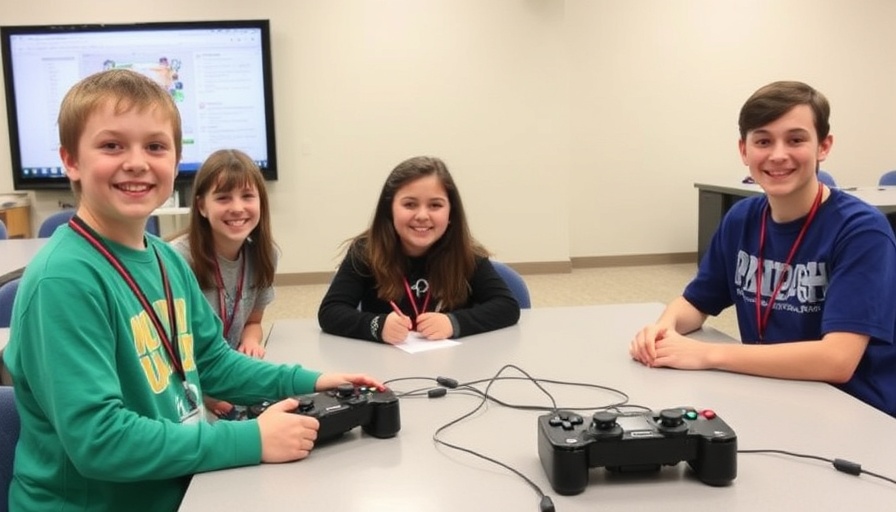
Empowering Gamers with Disabilities
At Aurora Highlands P-8, a group of enterprising students is flipping the script on gaming technology with their innovative adaptive video game controller. Under the guidance of STEM teacher Mitch Johnson, these students are not merely playing video games; they’re reshaping how gamers with physical disabilities can interact with their favorite pastime. This project stands as a testament to the power of creativity and empathy in education.
From Classroom to Competition: The Journey
What started as a classroom project has evolved into a national achievement. The students, inspired by a passion for gaming, began by examining the challenges faced by those with disabilities while using traditional controllers. “We wanted to know how we could help,” Johnson shared, noting that the project aimed to bridge a significant gap in the accessibility of gaming. As the students dove deeper into their research, they recognized the overwhelming costs associated with existing adaptive technologies, an awareness that bolstered their resolve to create a more affordable alternative.
Designing for Inclusivity: The Adaptive Controller
The resulting adaptive controller is noteworthy not only for its functionality but for its thoughtful design. Features such as oversized buttons and responsive conductive materials make it accessible for individuals who cannot operate standard controllers. Student Rose Vasquez-Montoya emphasized this point: “It’s important just to help with inclusivity. I know a lot of people could feel left out, especially if they're not able to use certain controllers.” This student-driven initiative is a poignant reminder of how technology can be leveraged to foster inclusivity in gaming.
Feedback-Driven Innovations and Iterative Improvement
The design process didn’t stop at the prototype stage. The students actively sought feedback from their intended audience—gamers with disabilities—using their insights to improve durability and functionality. Vasquez-Montoya recounted, “We wanted to find materials that would last long so they could have that enjoyment without having to pay a hefty price again and again.” This ongoing refinement process highlights a critical yet often overlooked aspect of product development: the importance of user feedback in crafting effective solutions.
Insights Beyond Gaming: Education and Empathy
This project encapsulates more than just technological innovation; it also serves as an educational model that connects academic learning with real-world applications. Johnson’s approach inspires students to consider the impact of their work on the broader community. By aligning their interests with the needs of others, students not only enhanced their technical skills but also developed empathy and social responsibility.
The Larger Impact: Cultivating Future Innovators
As this initiative reaches the national stage through a STEM innovation competition, it stands as a prime example of how education can cultivate future innovators. The work of these students illustrates that the intersection of technology and compassion can lead to ground-breaking solutions that resonate far beyond the classroom.
Join the Movement: Support Adaptive Technology
The journey of these Aurora students is a compelling reminder of the importance of accessibility in all areas of life, including gaming. As we celebrate their achievements, let’s continue to advocate for inclusive practices in technology design. Whether through sharing their story or supporting initiatives that prioritize accessibility, everyone has a role to play in making the gaming world better for all.
By embracing such creative projects, we nurture a generation of thinkers and doers equipped to address the challenges faced by diverse communities. The implications for this work extend beyond just gaming; it encourages all of us to uplift those who may feel marginalized and makes society more inclusive, one innovative idea at a time.
 Add Row
Add Row  Add
Add 




Write A Comment